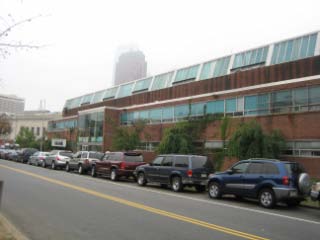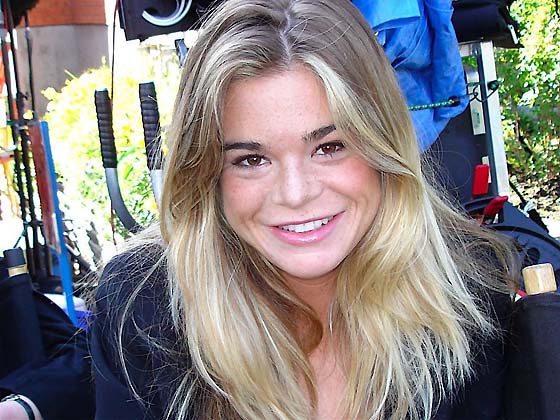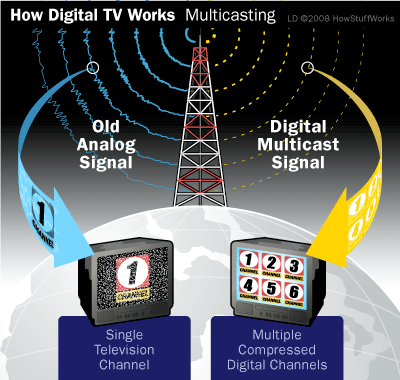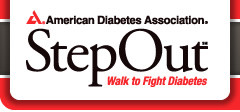
This is my eulogy for my beloved Dad, who died on April 10th of this year. The original version was shorter and designed to be delivered in a Church, but through mishap, a quirk of fate, honest mistake, whatever, neither I nor my sibs were called up to share our final words to honor our father. Yes, it is possible to screw up a funeral. After the numbness of the day, after the anger had faded, my next thought was to seal my offering in an envelope, take it to a quiet spot in the country, light it up and never look upon it again. I've had a change of heart. In hopes that the dead have infinite bandwidth, I submit this for your approval Pop. Feel free to edit and get back to me.
Saul Weiss, Wednesday, March 9, 1927 – Friday, April 10, 2009Do not go gentle into that good night. … Rage, rage against the dying of the light.
These lines of Dylan Thomas’s were special to my father because he spoke them at the funeral of my grandmother Esther Colker Weiss and memorialized them on a plaque following those services. A professional lifetime spent in putting a camera on top of microscopes and over the shoulders of doctors and scientists left my father a rational man, a skilled technician, deeply committed and proud of his contribution to the textbooks, slide catalogues, lectures and presentations that physicians use to pass on medical knowledge.
Very much not the type to wear his heart on his sleeve, Saul M Weiss nonetheless had a deep emotional reservoir. We’ve heard and read about his accomplishments, but it’s to this emotional side of Saul Weiss, that I’d like to speak today. The very first time I encountered it was in 1967. Dad stood in the doorway of 4149 Branding Place and he was weeping bitterly over the death of his father, who in these last couple of years, he’d grown to resemble in my eyes. It wasn’t an easy transformation to witness any more than seeing a grown man sobbing, blaming himself for the death of his father. Even at 10 years old, I knew it couldn’t be true, but I was rattled. I’d never heard him talk that way. I had never seen him cry. When he saw my reaction, he called me over, threw a hairy arm over my shoulder, pressed me to his wet scratchy face and said it was okay, that men cry sometimes and there was no shame in it.
Most often Dad’s emotional currents ran lighter, with toleration, optimism and pride, even in the face of injustice. In 1969, the troubles of the turbulent sixties reached inside our old clunker of a family car and touched me directly. There was a racially motivated murder in York, PA. There were race riots in Newark, Watts and Pittsburgh. Dad and I drove through, East Liberty, I think and we saw a National Guardsman at a barricade with a riot gun. He was blockading a street with horrid looking houses in front of which stood parked late model Lincolns and Cadillacs. Each car better than the Ramber Dad was driving. I’m sure the car was older than I was at the time. I asked my father two questions that day.
First, I wanted to know if we were about to have a race war in this country. Whatever personal anxieties that question raised, he turned to me very gently and said he truly believed cooler heads would prevail. It was all I needed to hear. I then asked him how all those people on that street, if they were so poor, could drive Lincolns and Cadillacs, while our car was rust-paneled station wagon that rattled when it stopped or started. He said, “Son, when people are deprived the opportunity to live in decent houses and work at decent jobs, they put whatever dignity they have into their cars.” The eloquence and insight of his responses, the dignity that day, was all his.
I’m still processing these life lessons, when later that summer, we were invited to dinner at the house of Rege Debonis, dad’s boss at Mercy Hospital. Rege and his family are just like us, except that they had a nicer house, nicer car, nicer clothes and they’re black. After a lovely meal, my father driving us home announced proudly that if everybody could sit down and break bread like our two families had, that the racial problems in this country would soon be over. Although Dad lived a life of “intolerance of intolerance”, these two events set and bookended my feelings about race and exhibited the emotional wisdom and tolerance of Saul Weiss.
Dad was such a square-shouldered guy. I never heard him swear worse than the word ‘damn.’ I never heard him use an epithet racial or otherwise, abuse or speak ill of anybody. I never knew him as anything but scrupulously honest and fair in all his dealings. From him and my mother, I’ve received these examples as a gift, the gift of clarity, a clear and unambiguous understanding of what it means to be fair which encompassed everything from how to treat people in business to how children should be raised up. Teach honesty by being honest yourself, even if to a fault. We all know honesty is the best policy, but it isn’t always easy to live with. My mother can tell you that.
When we lived in New Orleans Mom and Dad were invited during Mardi Gras, to the Krewe of Comus Tableau Ball, a grand affair for 3,000 people at the Gaiety Theatre. Young men and women, sons and daughters of New Orleans elite, sashayed past elaborately costumed as swans, pirates, fairies, bowing and curtseying for the admiration of parents and other distinguished spectators. My own parent turned to a distinguished gentleman seated next to him and said, “Y’know, I gave up playing Peter Pan when I was eleven.”
The distinguished gentleman turned to him and snarled, “Suh, that’s mah daughta out thae-uh!”
Trouble is, the fruit doesn’t fall far from the tree.
Trouble is, I got into similar trouble with the last person in the world that you’d want to. That’s right, my own mother. Two weeks ago Mom and I were on our way to visit Dad at the Nursing Home. Not that I’d needed an excuse, but I’d missed another opportunity to attend Sunday Mass doing another one of my late night writing stints. Mother was upset. She asked, “”What’s wrong, don’t you believe in God anymore?”
I said, “Mom, you don’t want to have this conversation with me.”
She said, “Yes I do.”
So we had it.
It wasn’t easy, telling her the truth about what I believe and don’t believe, because at the very least I knew I’d upset her at the very time that the very last thing I’d want to do is upset her.
Mom, though I do dearly love you, I do not believe:
· in a God who is petitionable by prayer.
· that his only begotten Son was born of a Virgin, suffered, died, was buried and rose from the dead to free me from my sins and allow me entry to the gates of heaven that were barred to all men, good or bad, since Adam and Eve who I also don’t believe in.
· Original Sin
· that Communion is anything more than a symbol for the Body and Blood of Christ,
· that the Bible is anything more than good words written by inspired men.
· I don’t believe in Heaven, a God with a gender, a white beard, mercy, love, a son, an army of angels, a temper and all the other anthropomorphicisms humans ascribe to their Gods? Aren’t these all just tales we tell each other in our rather mixed attempts to cherish each other, do good and further the cause of a moral society.
I do believe:
· That prayer might have power, but that that power emanates from those who pray and those who are prayed for.
· You don’t need a church to pray. I pray in my walks about the city, at this keyboard, my spirit worships the beauty of the cosmos, human genius, and the sweet happy faces of children.
· If there is a God, this entity is so far beyond my understanding, as far beyond the daily lives and sins of humans as a car’s backfire is from the Big Bang.
· I am a sinner, but I believe if there is forgiveness or redemption to be had, it’s only from the people I have wronged.
· I’d like to believe in an afterlife, if only because my own ego has a hard time accepting that when I die, that nothing will remain of me but memories. But since nobody has returned to say otherwise, I remain skeptical. All evidence suggests that when I or anybody dies, that we cease to exist.
· In being good. Playing nice with others. Picking my toys up (I’m a little weak on the last one) though I endeavor to be a good man. I think the rest of the spiritual stuff pretty much follows from that.
· That love should be saved for people and the creature that inhabit our world. Deities, if they exist don’t need my love. I invest my love in people, my family and friends, a few cats and the beautiful planet that sustains us all.
· That there is more of “God” in a tree than in a church
· That if there is an omniscient, all powerful Creator, “He” will have to be happy with that.
If “He” isn’t, if “He” is so vindictive and egotistical as to consign me to eternal damnation based on my skepticism alone, how can “He” claim any mercy, omniscience or omnipotence.
Okay, I gave her a much shorter version, but Mom knows more than enough to be praying in earnest for my immortal soul, to which I respond, it never hurts to have good people on your side.
At which point, half the people here are muttering under their breaths jeeze, why didn’t you shut up and just go to church with your mother? What kind of son are you? I am Richard, son of Saul become Paul. Son of Schmul become Sam. I am my father’s son, son of sons and I cannot lie to my mother. I never could.
It was to this very issue, that my father imparted the sagest advice he ever gave me, his profoundest bit of truth, the truth that defines me, the kind of son, brother, family member, friend I am and the kind of father I am. After a particularly intolerant priest denied me a dispensation (recognition of my impending marriage by the Catholic Church) because I wouldn’t subject my wife AND her family to the same hour long personal interrogation I went through, we were in crisis. I agonized over the split this would cause between my devout Catholic family and my soon to be wife and her devout Protestant family.
My wise father took me aside and said, “Son, your mother loves her God, but she loves you, her children more.”
This little diamond blew out all the anxiety and cobwebs. This truth launched my marriage 29 years ago, and it certainly crystallized the mutual admiration society between my lovely Kara and my parents that exists to this very day. For I also know with utter certainty that what Saul said about Rita loving her children most of all applied just as much to him, as to her. This is the kind of love that stands up to God, the devil, the priest, death or all the adversity the world can throw at you and says ‘Honey, don’t worry, I got your back and I always will.’
I know my brothers and sisters have tapped this emotional wisdom in our father. I know this because I’ve seen them all in action. They know. They know that’s what family is. Dependable. That’s what a Weiss is. Honest and fair. That’s who we are. That’s what we do.
Let me tell you of another current that fed the emotional aquifer of Saul Weiss. Dad was always intellectually ravenous and proud of every scrap of knowledge he gained in his life. In spite of or more, because he never finished college, he had a hunger, a fierce passion for learning. He chewed me out royally for my year-long sabbatical from college to “find myself.” He saw it as a lost opportunity. Button-popping proud of his contribution to the knowledge of medical students and doctors, he was equally proud of the knowledge he absorbed in the process. He saw this as more than a double bonus, a sacred and honorable trust. Surrounded in his work by doctors and health care professionals, he soaked in knowledge like a sponge and shared it freely with us.
The lesson of Saul is plain… If you want to know more, surround yourself with people who know more than you, then share. He believed that the value of, the essence of knowledge is that it’s worthless unless shared. Dad shared at home by being a lively debater, a skeptic, a man of strong opinions, a passionate, articulate talker. Always philosophical he was nonetheless earthy, a man as in love with the life of the mind as he was respectful of the humble origins and humble people from whom he sprang.
Perhaps the strangest take on the emotional stuff Saul Weiss was made of comes from a story of how my father approached discipline. I’m not talking about spare the rod spoil the child, ‘it hurts me more than it hurts you’ variety, though we know a little something about that brand of discipline. I’m talking about the much sterner stuff to be found in self-discipline.
Picture, a glorious early summer bright Saturday, I’m maybe my son Bennett’s age and Dad, in a sort of tense, conspiratorial way comes to me and says “I need you to go to work with me.’ Not “Do you want to go?” No. “I need you.” Well I puffed up like a peacock to be considered so indispensible by him. We got in the little yellow Volkswagen he’d just bought, and I think we must have been on Penn Avenue before I found out why he needed me urgently.
A crushed disk in his lower back was compressing the nerve beneath it. This extremely painful condition was one he was never willing to risk a laminectomy to relieve, because he had a family of seven to feed and the operation at the time carried a 50 percent chance of paralysis. This outcome was unthinkable to him. Well that day, I can’t imagine, solid, stoic dependable Saul, fighting back tears of pain, driving into Oakland. He said he was okay standing, but sitting was agony and such agony that he almost passed out from it. But he couldn’t get to work unless he sat to drive those 20 minutes or so and my purpose was simply to talk to him, talk him through it, be with him, anything really, just to help him keep his mind off the white hot poker in his back. That driver’s seat was about as comfortable as a hot frying pan. He pulled over twice on Penn Avenue alone, because he’d almost blacked out and lost control of the car.
Truthfully I don’t remember anything about what film we developed, what pictures we printed, or slides we made. I just remember that trip and the terrible courage and discipline it must have taken to sit in that car and drive a manual transmission, 20 minutes, each way. Every pothole in the road. Every shift of the gear, stop and start, torture.
Call him crazy. Call me crazy for admiring him in this single-minded, if reckless mission. Yet, anybody who knows my Dad knows how important his work was to him. I don’t think it was so crazy. I think that this was his defiant response to his pain which he would endure in some form, for the rest of his life, his defiance, as bad as it got, he would rise above it. From that day forward pain would always ride in the back seat, because his obligations to wife, family and the physician educators who depended on him were too important. I hope he never suffered any more than he suffered that day. Me, I was too dumb to even be scared though I should have been. What I learned that scary day was how deeply a man can and should care about who he is and what he does. That is a lesson I plan to pass on to my sons, though I hope to find a less dramatic way to illustrate it.
The picture in Dad’s high school yearbook says, Saul Weiss, Championship Football Team Capt 44, Camera Club President, Song Yell and Motto Committee. Girls all swoon for him. Five foot nine. Shock of golden hair and a smile like a sunbeam. Girls all swoon for him.
How did Dad feel about the women in his life? Anybody with the temerity to suggest that Saul Weiss needed to get in touch with his feminine side would have been invited to a knuckle sandwich. Yet that bravura was so transparent. I saw my father with his own mother. Such tenderness, such sweetness.
Truth time. I hate nursing homes. The smell of urine, the demented wailing. The sounds of suffering. The omnipresence of death. Stepping off the elevator at the nursing home my Dad died in, I became eleven years old again visiting my grandparents. Then as now, you walk down the hall and all these sad, wizened faces pop up. Are you mine? Have you come for me? Can you take me home? Are you mine?
No. I’m not. I’m sorry. I wish I was your grandson or son. I even wish I was black death, come to ease your boredom, loneliness and loss of dignity. But I’m not.
At eleven, I avoided their gazes. I couldn’t bear them. At 51, though still scared I got off that elevator and forced myself to look them square in the face. I tell them with the respect in my eyes and my friendly hello that I could easily know you. You were young, lively. Your body was supple. You laughed at your own jokes. You fought. Made love. Made babies. Grieved those that went before you. Earned. Mattered. Cared. And you meant something to somebody. I hope you still do but that look you’re giving me says otherwise. So, if you matter only in this fleeting connection that passes between us, if you forget me as soon as I pass your field of vision, know that I know you and I will never look away again. Even if I can’t hope to bring what you really need. For that, you’ll have to wait just a little longer. I wish …
I wish my collective memories of my grandparents were sharper, more detailed. What I have seems barely worth its weight in salt. A tiny apartment. Kissing wrinkled faces. The smell of boiled chicken and old skin, the sight of aspirins large and white on pale, lined palms, the taste of chocolate halvah and pareve macaroons, Grandpa so tiny and quiet in the corner, that he blended with the wallpaper. These memories are insubstantial, unsatisfying, anemic little wisps that are barely mine but they are all I can cling to. Oh Esther, Oh Sam, I knew nothing of the redheaded firecracker, the indifferent cook who married the pushcart Eggman, raised three strapping clowning boys on Ward Street, braved the Depression and two World Wars, was suffragette, a Communist, a picketer for the social causes of the day and gave her baby son over to the gorgeous Italian girl next door who lost her own handsome Dad at sixteen. (Despite your teasing, she passed her driving test the first time out. Forgive me Dad, but you know and I know Mom was always a better driver than you were.)
But more, forgive me my disloyalty that when I looked at your beloved mother and father, particularly Grandma in her 80’s and 90’s I only saw the shells, desiccated by decades of health problems. Dad you saw something lovely in those sunken face and wide, vacant eyes. You didn’t even see the shells.
Gimme a kuss Mum. Give me a kiss Pup. The old man had a face like sandpaper and a smile like Tony Bennett. Gimme a kuss Mum. All he had to say and the old girl caught his spark like a sunbeam. She just turned on whenever he entered the room. Gimme a kuss. This was the woman he’d sacrificed a college career to nurse. Sacrifice never weighed on him, rather it lightened and ennobled him. Dad, it took a few years and you getting older and dying, but I get it now.
There are lots of stories from lots of people about Saul and Rita. Most involve crowds of people, big events, happy times. But I can sum up this most central relationship in my life with a very small, private story. The last meaningful thing I heard my father say occurred during the last call I made to his room at St. Barnabas before I left Philly for Pittsburgh. When I called, I said this is Rick and he said very weakly, “Hi Rick.” I asked how he was and his unconvincing reply was, “Okay.” Prompted by my mother, he said my name again and what sounded like goodbye, then trailed off. I started talking to my mother and I could hear him moaning in the background. When my mother asked “What do you need Sully? he bellowed out, clear as a bell, “YOUR HAND.” I think that says it all. Dad, I get it.
I don’t know if the night the poet spoke of is a good night. I don’t have the wisdom to know how you can even call it that. I don’t know if it makes a difference if you rage or go quietly. After a more than a decade of raging, in the end, Saul Martin Weiss, husband, father, grandfather, left quietly, with those of us who love him, either at his side or rushing to be with him.
I don’t know what he’ll find—if anything. But I do know what he left. Not one great golden act, rather a golden chain of good words, long talks, good deeds, good thoughts, riches stored up for the promise of a better world and his most important legacy, good people that he inspired to make it all so.
Though I speak with the tongues of men and of angels, and have not love, I am become as sounding brass, or a tinkling cymbal. And though I have the gift of prophecy, and understand all mysteries, and all knowledge; and though I have all faith, so that I could remove mountains, and have not love, I am nothing. … Love suffereth long, and is kind; Love envieth not; love vaunteth not itself, is not puffed up, Doth not behave itself unseemly, seeketh not her own, is not easily provoked, thinketh no evil; Rejoiceth not in iniquity, but rejoiceth in the truth;
I am Saul, become Paul. Son of Schmul become Samuel. Son of sons. I have found and practiced the truest forms of love.
Saul left the richest legacy a man can leave. If what he finds is in any way weighed or measured against what he left, then Saul Martin Weiss, brilliant convert, man of conscience, is transfigured and he is as he always was, our beacon, fair and generous, loving and well-loved, truth telling and truth seeking, luminous and by any balance, a most gifted and fortunate soul.
Dad, you’d be the first to say I’ve gone on way too long, though neither of us could ever be faulted for verbal parsimony. Both of us are prone to a certain floweriness of language. I come by it honestly. We share the same middle name. I so miss our talks. Let me hear back from you, if only in my dreams. You can’t let me have the last word.
Here are the obituary links. Also two nice articles in Pittsburgh papers. Wonderful tributes:
http://www.post-gazette.com/pg/09103/962426-122.stmhttp://www.pittsburghlive.com/x/pittsburghtrib/obituaries/s_620345.htmlhttp://www.legacy.com/gb2/default.aspx?bookID=3079617606124&view=1http://www.legacy.com/postgazette/Obituaries.asp?Page=LifeStory&PersonID=126054892



























